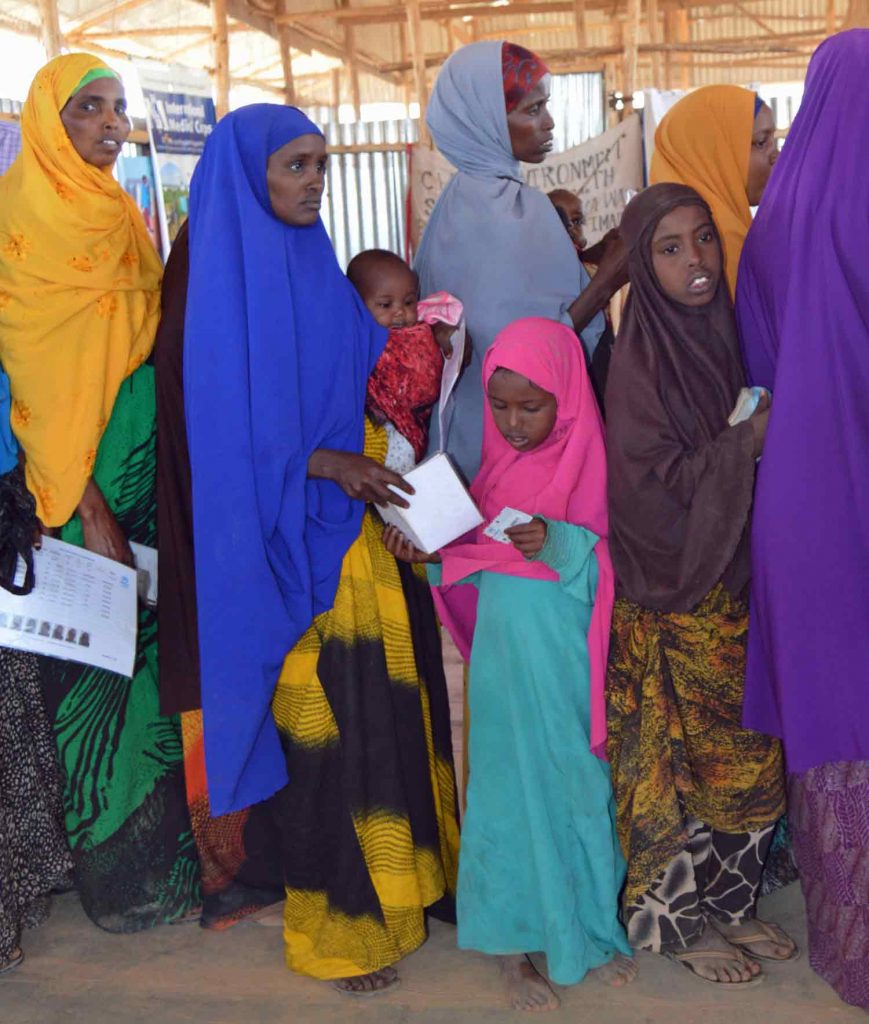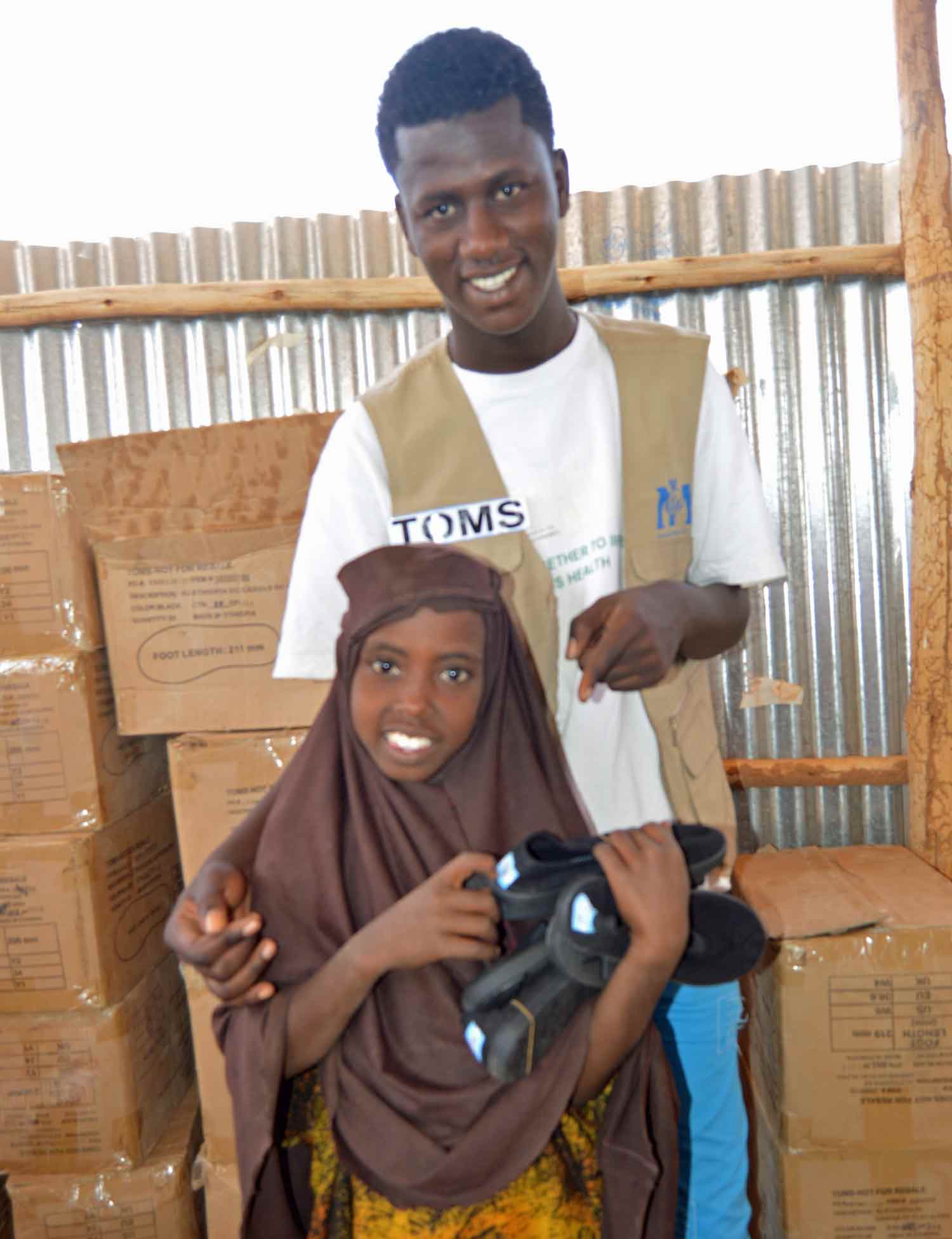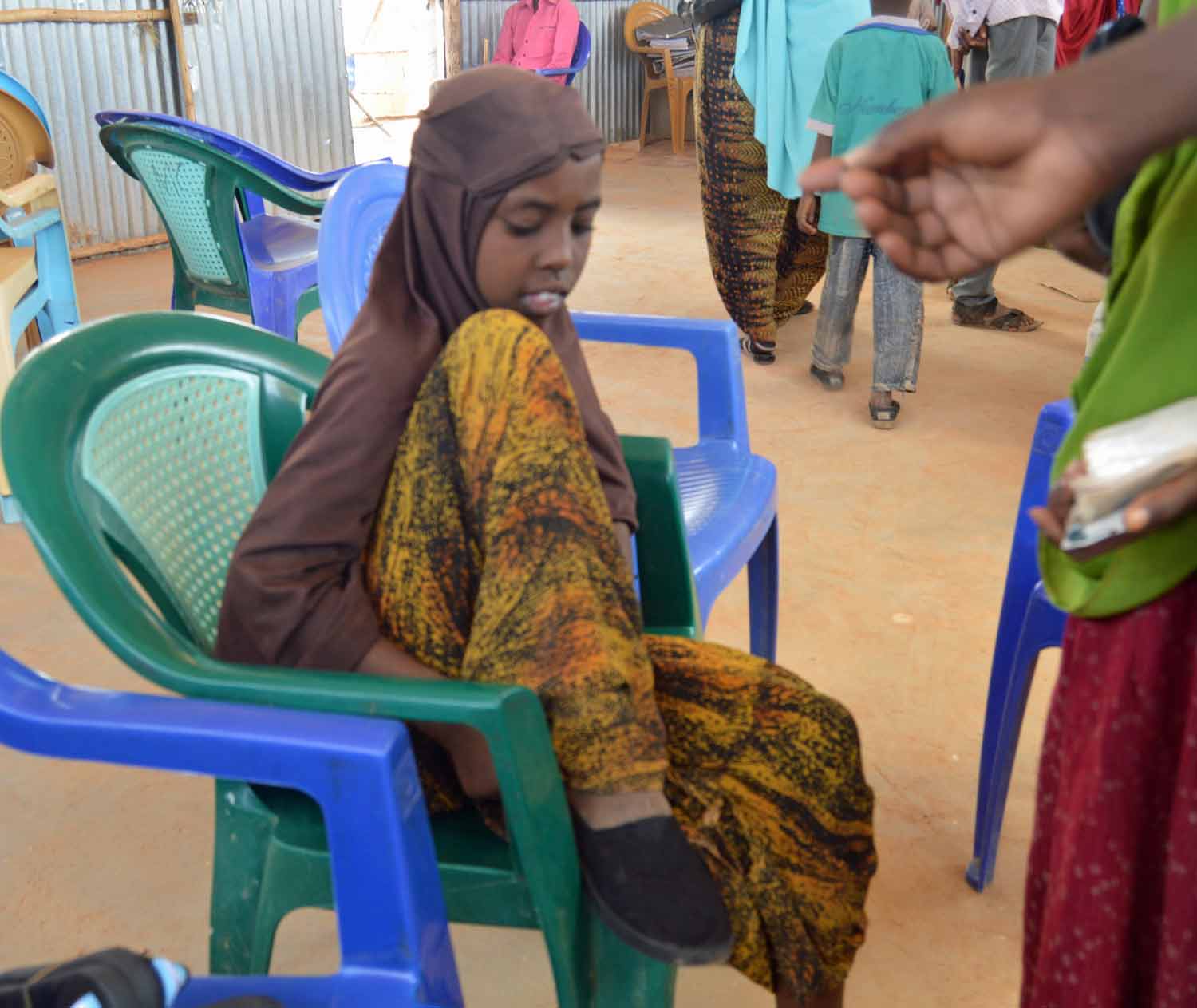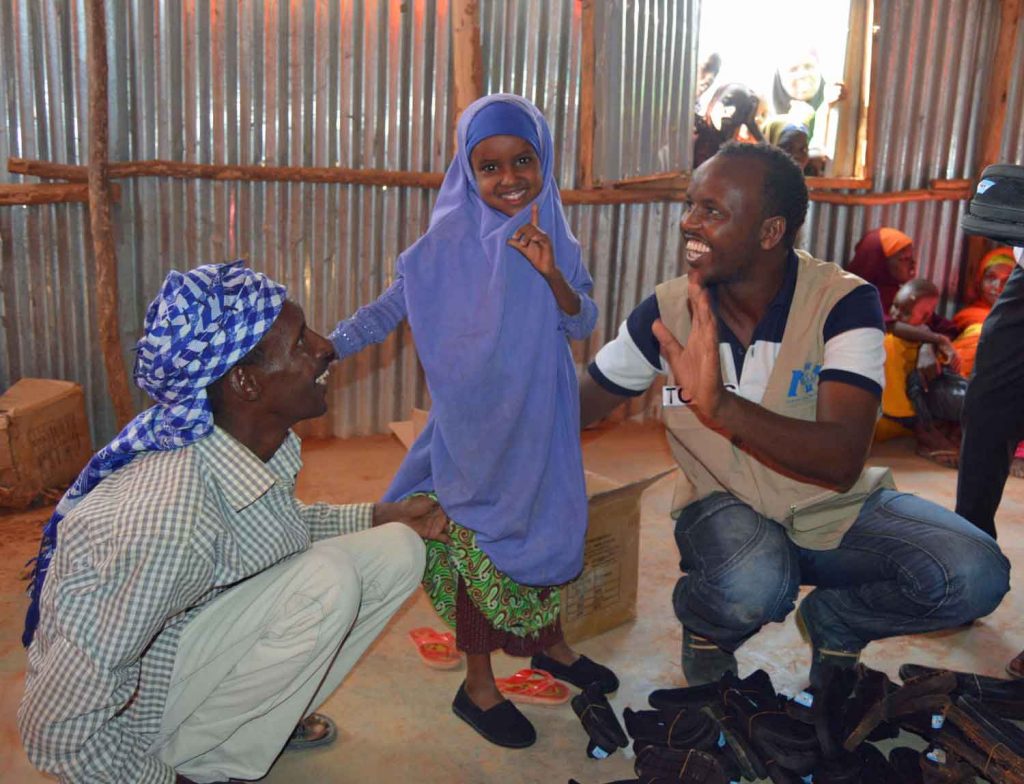For those in the sprawling refugee camps of Ethiopia’s Dolo Ado region, shoes are no fashion statement. They are key to good health. They open the door to an active social life and even encourage education. However, good shoes are hard to come by in the refugee camps as most people arrive with nothing to their name, fleeing the violence and hardship of their homelands with only the clothes on their backs.
In response, International Medical Corps teamed up with the shoe company TOMs to address this major health concern for refugees in Ethiopia. International Medical Corps distributed 72,000 pairs of shoes donated by TOMs and then organized the distribution to children and youth in three separate refugee camps.
Dega Aden, age 11, lives with her family in the austere Bokomayo refugee camp –home to 30,000 refugees from a total refugee population of 175,000 living in four additional nearby camps in the Dolo Ado region – and does not own a pair of shoes to call her own. She fled the bloody conflict and drought in Somalia with her family, including her five sisters and four brothers, in search of a safe haven. Dega’s temporary home in the Bokomayo camp is situated in an arid, dusty, stone filled environment – hardly an ideal place to live but safe from violence.
“I sometimes had to borrow my mother’s shoes to walk to school,” says Dega. “My mother was not able to buy us shoes when we needed them. She sometimes had to wait for three months and save food from our daily rations in order to sell some of our food in order to purchase shoes for me, as well as my brothers and sisters.”
Dega is one child who received a new pair or sturdy shoes from International Medical Corps and TOMS. After receiving her new shoes Dega was very happy, and could not wait to return to her home in the camp to start wearing her new shoes.

“Now I feel clean and safe and I also look good at school. It gives me encouragement and motivation to attend school. I hope that this support continues in future also.”
As with all refugees who have sought asylum in the Dolo Ado region of Ethiopia, it is often impossible for families to provide basic needs such as shoes or clothing. They are dependent upon the government of Ethiopia, United Nations agencies and humanitarian organizations such as International Medical Corps to provide sufficient food, water, personal hygiene and other support required to survive…including shoes. Shoes are just one tool that help protect the overall health and well-being of refugees, but are often in limited supply and therefore are coveted goods in the camps.


“[Shoes] also helps [refugees] to improve their personal hygiene, as well as protecting them from various infections that may result from foot injuries or exposure to bacteria and other unhygienic conditions in the soil,” says International Medical Corps Hygiene Promoter Abdikerim Omar. Abdikerim is also a refugee from Somalia and understands the social consequences of not having a reliable pair of shoes.
Abdikerim adds, “[Shoes] improves the integration of people living in the camp. Children are encouraged to move from one place to the other in the camp to socialize with each other, participate in campaigns, attend hygiene awareness raising sessions and participate in all aspects of community collaboration.”
